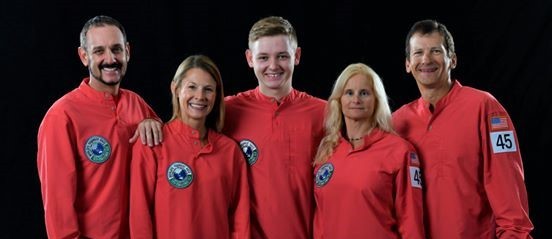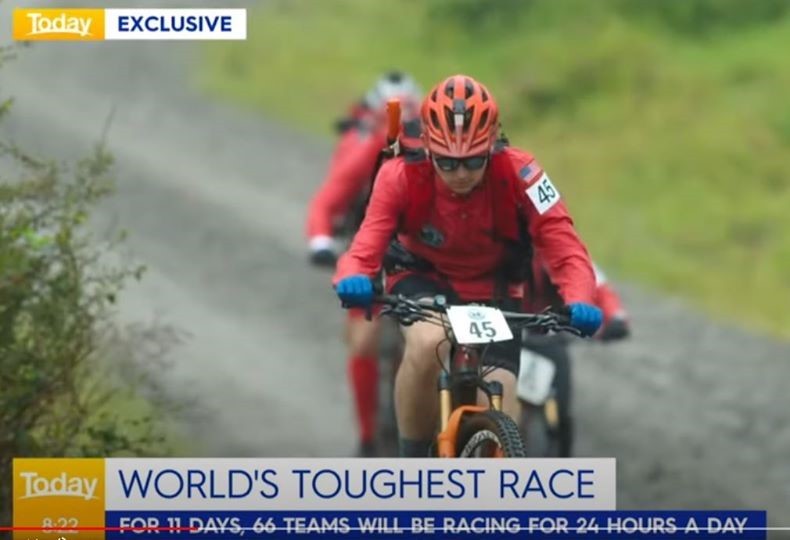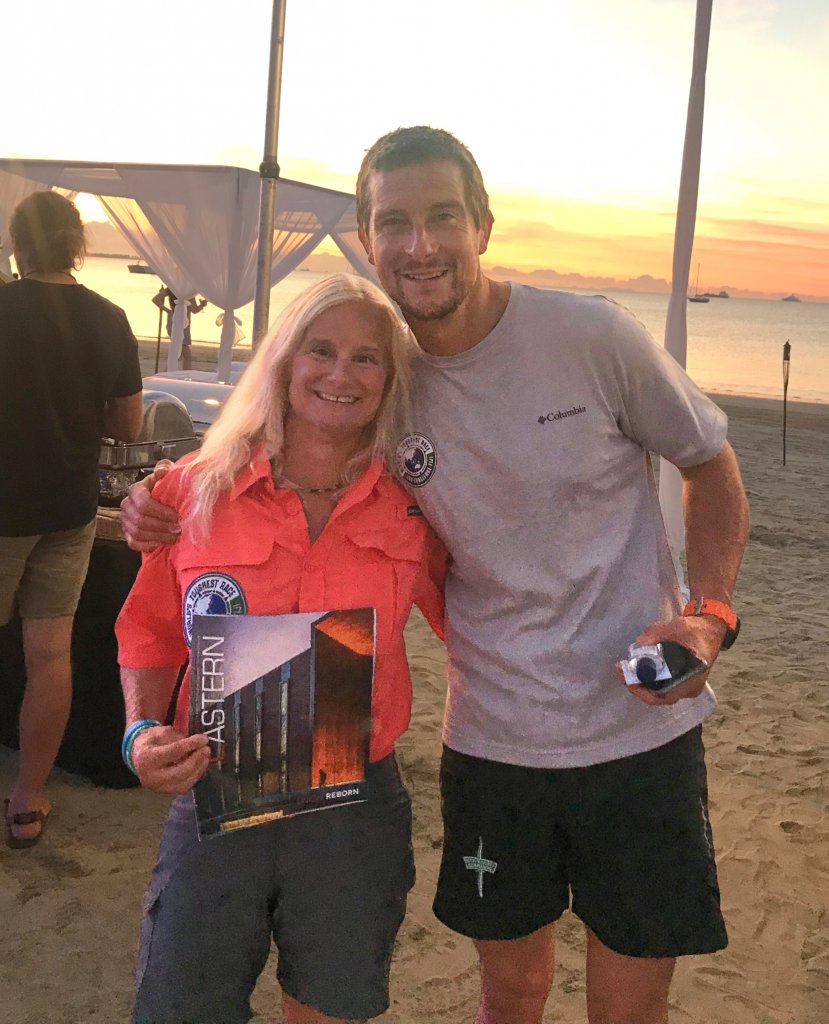When most of us imagine a trip to Fiji, we likely picture the beach, great food, tropical drinks and maybe, if we’re feeling ambitious, an afternoon hike to a beautiful waterfall. But for one Eastern Washington University professor, a recent trip to Fiji looked less like a dream vacation and more like a grueling survival situation.
Jeni McNeal is a professor of exercise science in the Department of Wellness and Movement Sciences at EWU. Her passion, aside from teaching Eastern students, is the extreme sport of adventure racing.

“We sometimes explain it as Tough Mudder meets triathlon. But those are just one day,” says McNeal. “I specialize in expedition adventure racing, and that is, by definition, a race that is three days or longer and you’re racing 24-hours a day during that time.”
Adventure racers traverse extremely remote and downright dangerous terrain. During a race, they’re required to complete a number of segments, or legs, which can include mountain biking steep and muddy trails, hiking through dense forest or jungle, climbing up a waterfall, and rafting a fast-moving river through a narrow canyon. Racers also do so with very little sleep, competing through the night (and in the dark).
Adventure racing was made popular in the mid-1990s when television producer Mark Burnett, who also created Survivor, developed a television series documenting a multi-day expedition race called Eco-Challenge. The Eco-Challenge series debuted in 1995 on the Discovery Channel.
“Eco-Challenge, the original series, is kind of what all of us watched to get inspiration and get introduced to this sport,” McNeal says. “So, when it came back in Fiji in 2019 every adventure racer in the world was salivating to be part of something that is so legendary.”

McNeal and her team, AR Georgia, applied and became one of several dozen teams to compete in the revival of the popular adventure show. The five-member, co-ed teams consist of four racers and one crew member. McNeal originally planned to be one of the racers, but after having back surgery in early 2019, she was forced to change her position to crew member.
“That was disappointing, but I saw it as an opportunity to experience the race from a whole different perspective,” says McNeal. The crew member is responsible for assisting their team at multiple camps along the course. McNeal helped with everything from first aid to preparing meals—plus, and most importantly she says, keeping her exhausted team members motivated.
McNeal’s team was made up of adventure racers from across the country, including a father-son duo from Georgia: Jeff and Hunter Leininger. Hunter in particular earned recognition during the Eco-Challenge as the youngest racer in the competition. The 18-year-old already holds multiple world records as the youngest racer to complete both three-day and four-day expeditions.
“I’ve raced with Hunter since he was 14. I’ve seen him grow from a little scrawny kid to an adult,” says McNeal. “That was rewarding to see him really come out and race his own race.”

The World’s Toughest Race: Eco-Challenge Fiji filmed in September 2019 and is hosted by survival expert and television personality Bear Grylls. The challenge started with 66 teams, but after 11 days, 417 miles, and too many physical challenges to list, only 44 teams finished—including McNeal’s team. You’ll have to watch the series on Amazon Prime to find out how they did. Team AR Georgia is marked with #45 to help you spot them in the episodes.
If the Eastern connection isn’t enough to encourage you to watch, McNeal says there are a number of inspirational stories that she promises will make the show worth your time. For example, one racer who was recently diagnosed with Alzheimer’s Disease defies the odds and races with the help of his son.
“I hardly slept the whole time in these camps because I wanted to be there every time a team came through, whether it was two o’clock in the morning or two o’clock in the afternoon,” McNeal says. “To share in some of their stories was really humbling.”
McNeal also got the chance to interact with the villagers in Fiji. “I’ve traveled the world doing lots of different things and the Fijian people are, without a doubt, the most generous, kind, joyful people I’ve ever met,” she says.
Part of the Eco-Challenge mission is to leave the areas it visits better than before the teams arrived, which often includes planting trees or building trails. In Fiji, McNeal assisted a local community by bringing books to help rebuild a library that was destroyed by a monsoon.
Since the filming of Eco-Challenge Fiji, McNeal has a new team and is eagerly preparing for the next adventure: Eco-Challenge Patagonia 2021. McNeal is registered to participate as the crew member again, but if the her back recovery continues to go well, and a position opens up, she hopes to get the opportunity to race this time—even if the conditions will be completely different.
“In Fiji we had to deal with intense heat, humidity, rain and jungle rot,” she says. “Patagonia is going to be extreme cold and wet, snow and hypothermia.”

